A solid cylinder of mass m rolls on a rough surface with velocity v0. It collides elastically with a cubical block of same mass at rest. The centre of mass of both the bodies are at same height. Coefficient of friction between horizontal surface and cylinder as well as horizontal surface and cube is μ. No frictional exists between cylinder and cube. The cylinder collides the, cube at t=0, then.
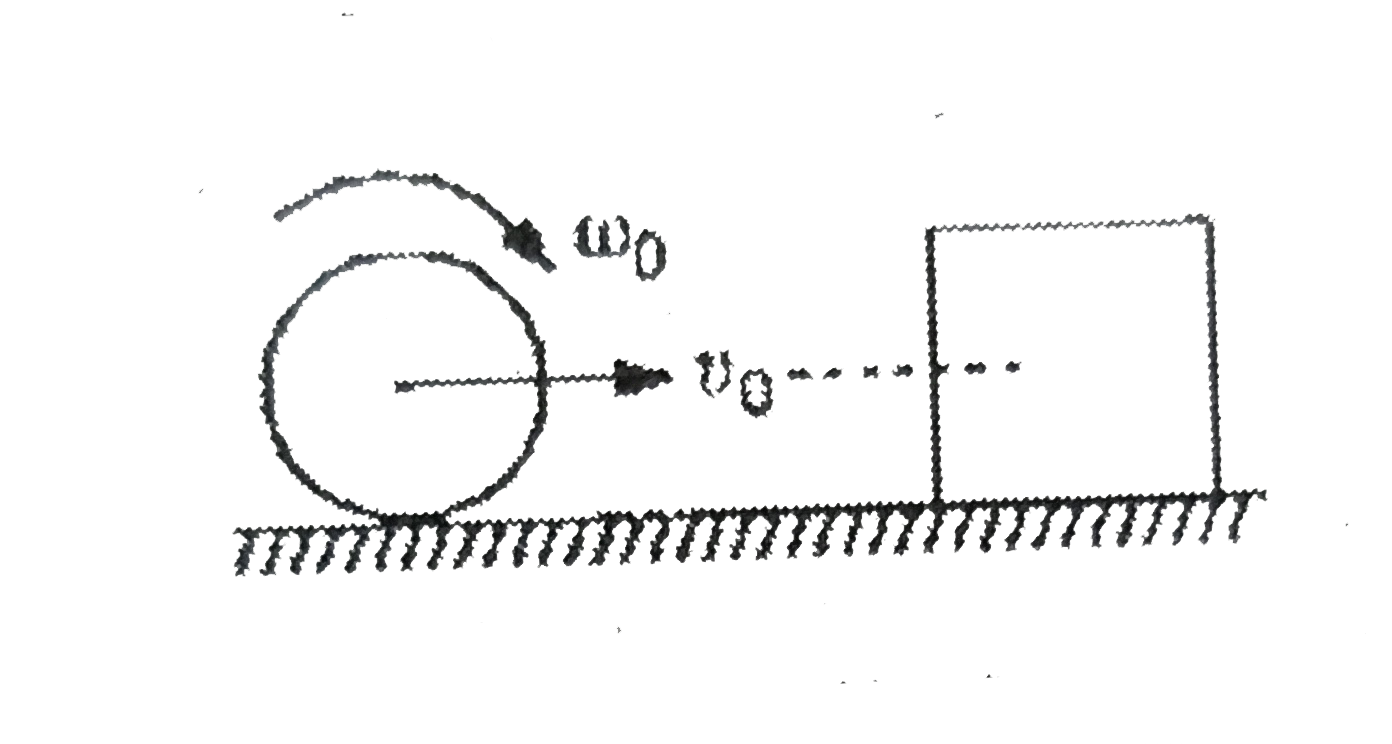
Percentage of energy of cylinder lost due to collision is:
zero
50%
66.67%
33.33%
The correct Answer is:D
Step by step video, text & image solution for A solid cylinder of mass m rolls on a rough surface with velocity v_(0). It collides elastically with a cubical block of same mass at rest. The centre of mass of both the bodies are at same height. Coefficient of friction between horizontal surface and cylinder as well as horizontal surface and cube is mu. No frictional exists between cylinder and cube. The cylinder collides the, cube at t = 0, then. Percentage of energy of cylinder lost due to collision is: by Physics experts to help you in doubts & scoring excellent marks in Class 11 exams.
Topper's Solved these Questions
- BOOK - ANURAG MISHRACHAPTER - RIGID BODY MOTIONEXERCISE - MATCH THE COLUMN12videos
RIGID BODY MOTION
- BOOK - ANURAG MISHRACHAPTER - RIGID BODY MOTIONEXERCISE - MCQ_TYPE41videos
RIGID BODY MOTION
- BOOK - ANURAG MISHRACHAPTER - IMPULSE AND MOMENTUMEXERCISE - matching3videos
IMPULSE AND MOMENTUM
- BOOK - ANURAG MISHRACHAPTER - UNIT AND DIMENSIONSEXERCISE - Matching Type Problem4videos
UNIT AND DIMENSIONS
Similar Questions
A solid cylinder of mass m rolls on a rough surface with velocity v0. It collides elastically with a cubical block of same mass at rest. The centre of mass of both the bodies are at same height. Coefficient of friction between horizontal surface and cylinder as well as horizontal surface and cube is μ. No frictional exists between cylinder and cube. The cylinder collides the, cube at t=0, then.
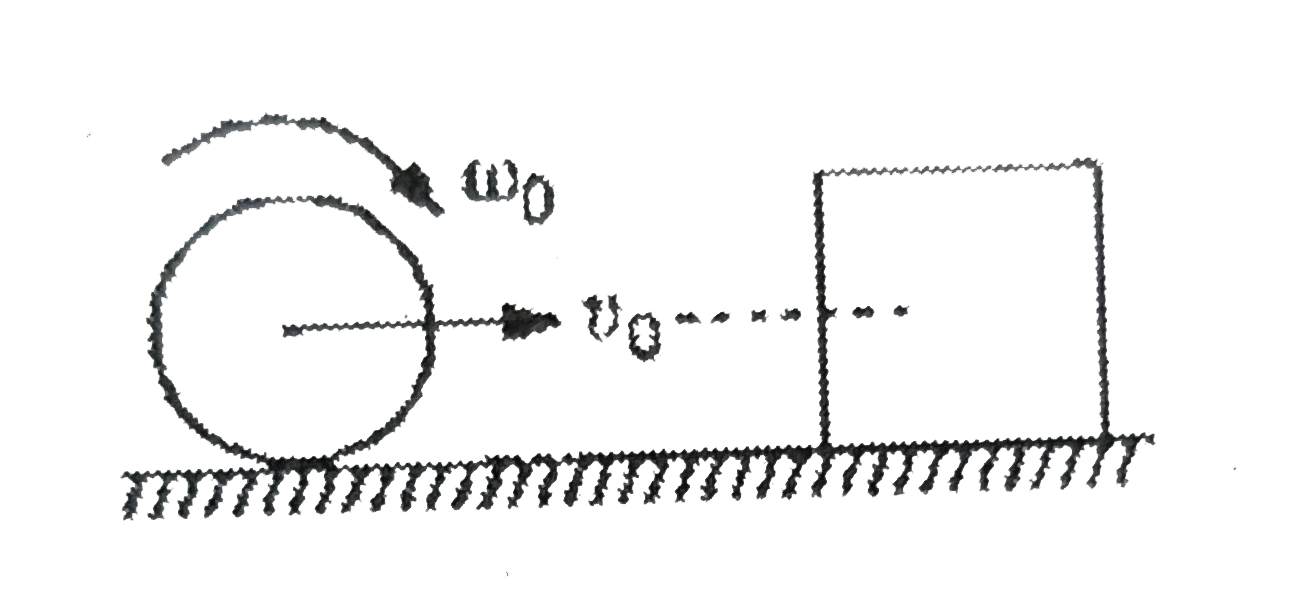
Regarding frictional force acting on cylinder we can say that:View SolutionA solid cylinder of mass m rolls on a rough surface with velocity v0. It collides elastically with a cubical block of same mass at rest. The centre of mass of both the bodies are at same height. Coefficient of friction between horizontal surface and cylinder as well as horizontal surface and cube is μ. No frictional exists between cylinder and cube. The cylinder collides the, cube at t=0, then.
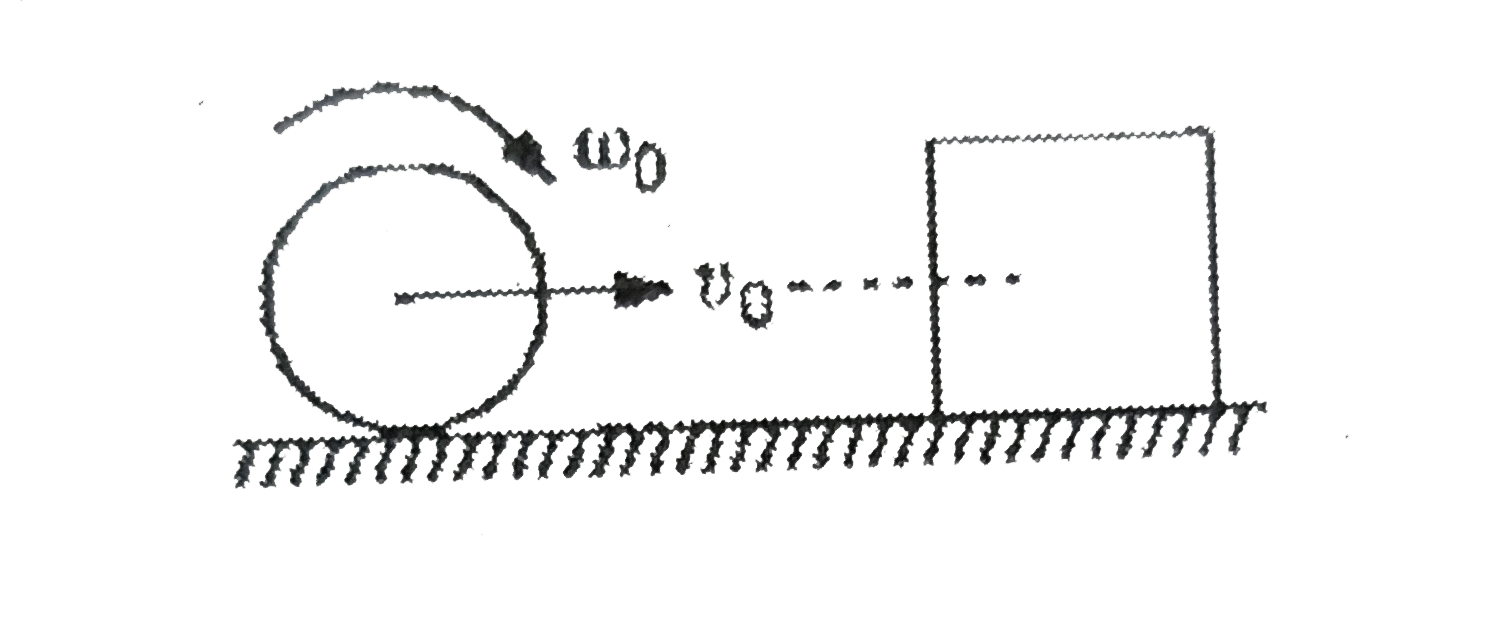
Time after which the cylinder starts pure rolling again:View Solution
Knowledge Check
- Question 1 - Select One
A solid cylinder of mass m rolls on a rough surface with velocity v0. It collides elastically with a cubical block of same mass at rest. The centre of mass of both the bodies are at same height. Coefficient of friction between horizontal surface and cylinder as well as horizontal surface and cube is μ. No frictional exists between cylinder and cube. The cylinder collides the, cube at t=0, then.
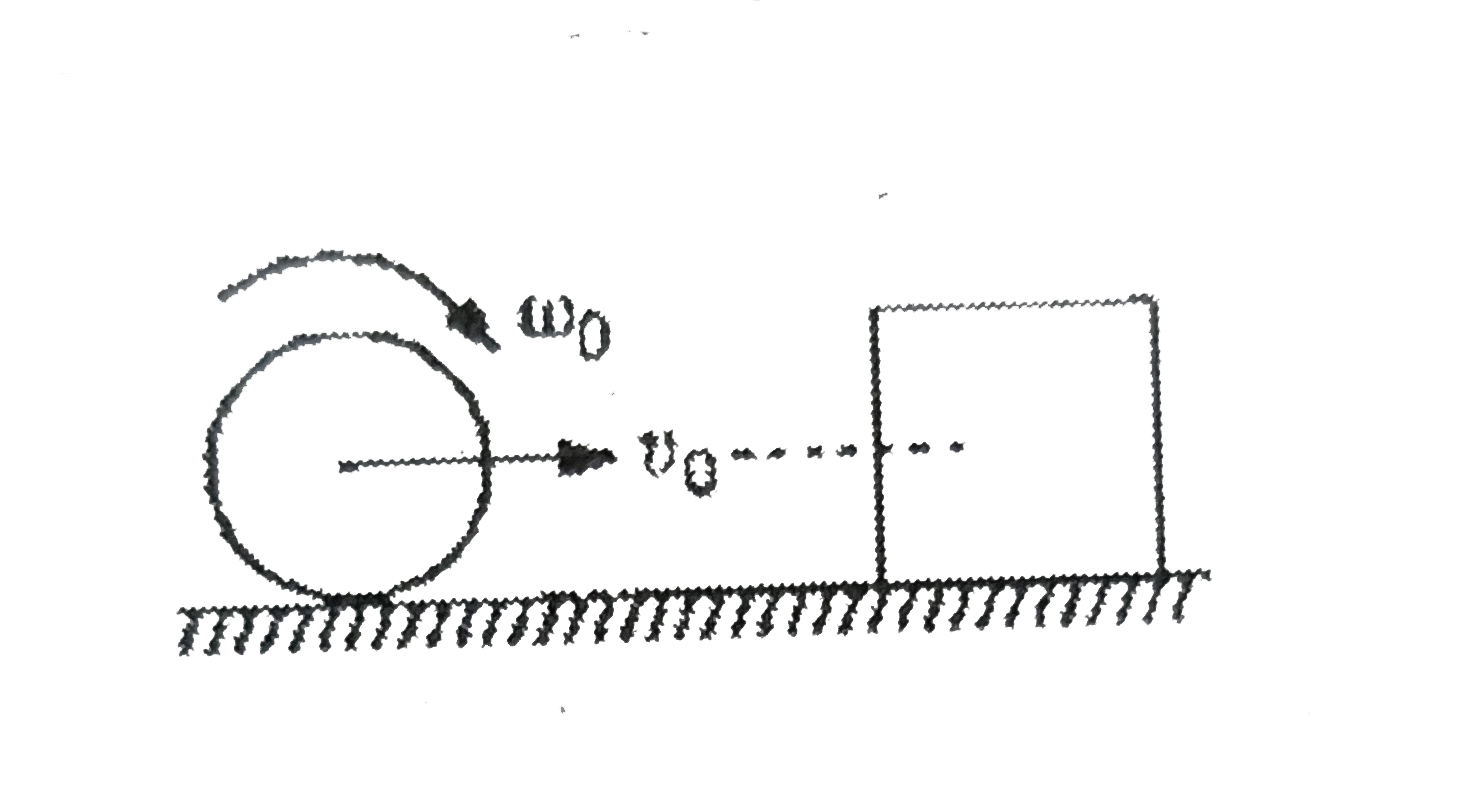
Velocity of cube when the cylinder starts pure rolling:Av02Bv03C2v03Dv04 - Question 2 - Select One
A solid cylinder of mass m rolls on a rough surface with velocity v0. It collides elastically with a cubical block of same mass at rest. The centre of mass of both the bodies are at same height. Coefficient of friction between horizontal surface and cylinder as well as horizontal surface and cube is μ. No frictional exists between cylinder and cube. The cylinder collides the, cube at t=0, then.
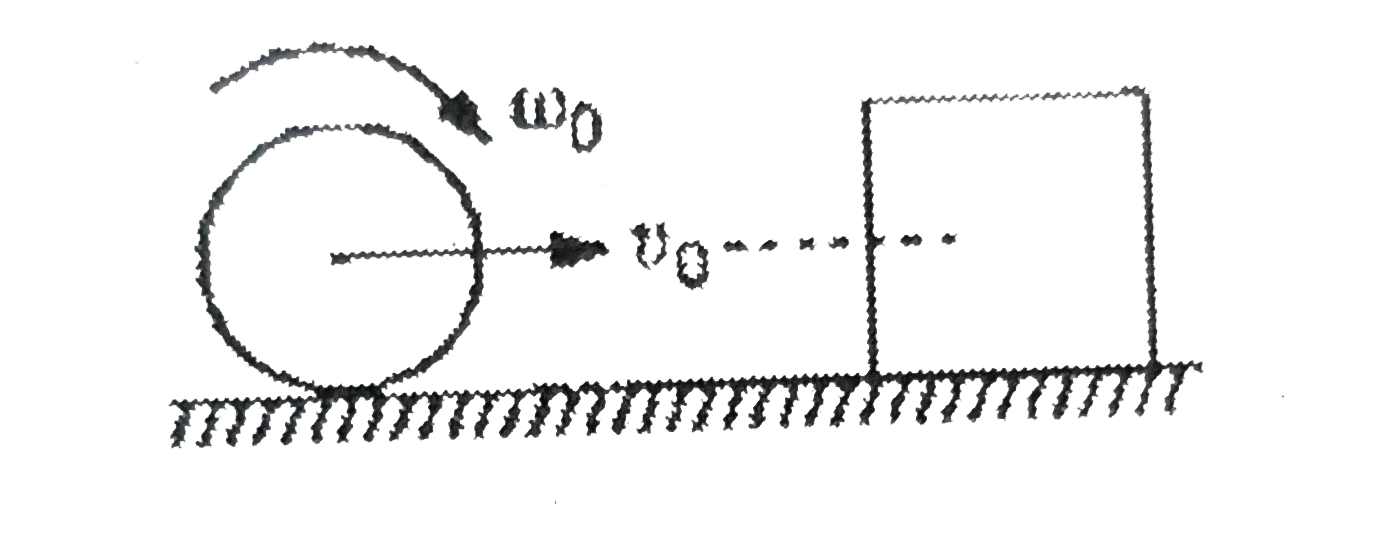
Maximum separation between cylinder before it collide the cube again is:Av0(2)μgBv204μgCv204μgDzero - Question 3 - Select One
A solid cylinder of mass m rolls on a rough surface with velocity v0. It collides elastically with a cubical block of same mass at rest. The centre of mass of both the bodies are at same height. Coefficient of friction between horizontal surface and cylinder as well as horizontal surface and cube is μ. No frictional exists between cylinder and cube. The cylinder collides the, cube at t=0, then.
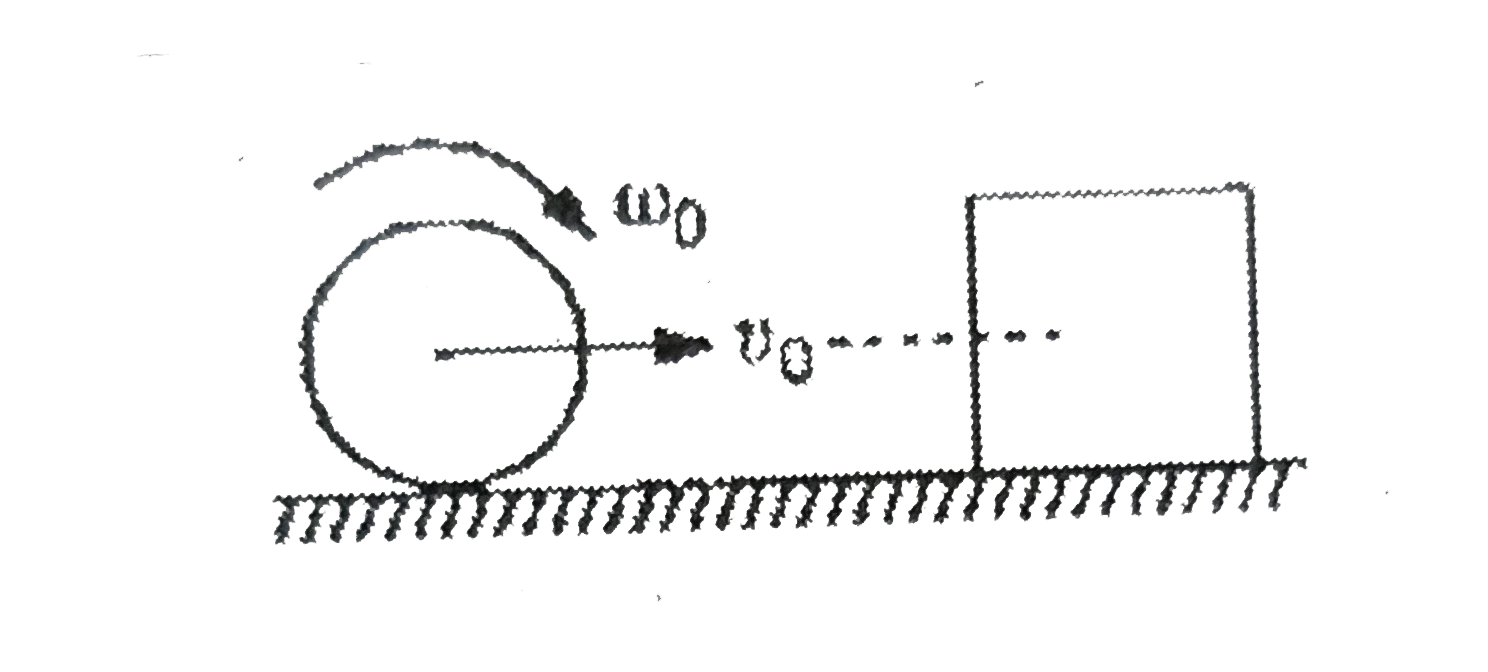
Velocity of cylinder with which it will collide with cube again is:Av0Bv03C2v03Dv04
A solid cylinder of mass 3 kg is rolling on a horizontal surface with velocity 4ms−1. It collides with a horizontal spring of force constant 200Nm−1. The maximum compression produced in the spring will be
View SolutionA solid cylinder of mass 3kg is rolling on a horizontal surface with velocity 4ms−1. It collides with a horizontal spring of force constant 200Nm−1. The maximum compression producec in the spring will be :
View SolutionA force F accelerates a block of mass m on horizontal surface. The coefficient of friction between the contact surface is . The acceleration of m will be -
View SolutionA body of mass m kept on the floor of a lift moving downwards is pulled horizontally. If μ is the coefficient of friction between the surface in contact, then
View SolutionA string wrapped around a cyliner of mass m and radius R. The end of the string is connected to block of same mass hanging vertically. No friction exists between the horizontal surface and cylinder.
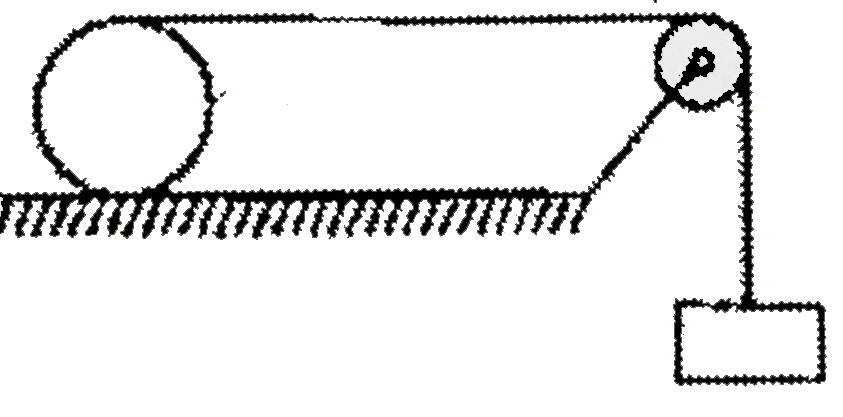
Acceleration of cylinder is:View Solution

